School of Social Work News
Pages
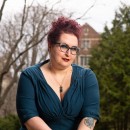 Shanna Kattari is a 2022 Vicki Sexual Freedom Award Honoree
Shanna Kattari is a 2022 Vicki Sexual Freedom Award HonoreeAssistant Professor Shanna Kattari is a Woodhull Freedom Foundation 2022 Vicki Sexual Freedom Award Honoree. The award recognizes those individuals whose life and work embody the foundation’s mission and values, and who have made landmark contributions to the sexual freedom movement through education, advocacy, research and activism.
Kattari will receive the award in August 2022 at the Sexual Freedom Summit. “As someone who has been doing sexuality education and advocacy work for the better part of two decades, I am so honored that my work is being recognized in this way,” said Kattari. “We still have far to go to ensure that all disabled people, queer and trans people, people of color, older adults, kinky folks, those who are non-monogamous and sex workers are treated with justice in the realm of sexuality, basic human rights and access. I hope my work brings more attention to many of these topics, and encourages social workers to understand that affirming sexuality is an important part of our practice.”
- April 6, 2022
- Learn more »
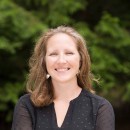
 Children’s Savings Accounts Offer Hope
Children’s Savings Accounts Offer HopeAssociate Professor Terri Friedline and Professor William Elliott spoke with the Guardian about the benefits of children’s savings accounts, which extend beyond saving money for college. Research shows that these accounts positively affect the social emotional development of kids and encourages families to build other assets. “It’s not because they’re getting money in their hands, it’s more about understanding their kids have a better future,” said Elliott. “What assets give you is tangible hope.”
- April 5, 2022
- Learn more »
 Terri Friedline Shares Overdraft Fees Research with U.S. House Committee on Financial Services
Terri Friedline Shares Overdraft Fees Research with U.S. House Committee on Financial ServicesAssociate Professor Terri Friedline was invited to share her research on overdraft fees with the U.S. House Committee on Financial Services. Friedline is part of a nationwide movement to eliminate overdraft fees which are excessive, predatory, and punish lower-income people for not having enough money in the bank.
- March 30, 2022
- Learn more »
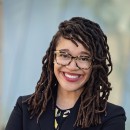 Ashley Cureton Named 2022 U-M Center for Academic Innovation Engagement Faculty Fellow
Ashley Cureton Named 2022 U-M Center for Academic Innovation Engagement Faculty FellowAssistant Professor Ashley Cureton has been named a 2022 Public Engagement Faculty Fellow by the U-M Center for Academic Innovation. The cohort of 14 fellows will participate in an intensive program designed to build engagement skills, understand key public-engagement concepts and reflect together on how public engagement fits into their scholarly identities.
"This program will help me to reflect on how public engagement fits into my scholarly identity. I am committed to considering the breadth of ways that my research creates public impact, from designing exhibits to working with policymakers to conducting community-engaged research projects to develop interventions and programs and to amplify the voices of refugee populations in the U.S. and abroad," said Cureton.
- March 23, 2022
- Learn more »

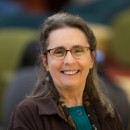 2022 ENGAGE Active Grant Recipients: Empowering Engagement with Detroit Communities
2022 ENGAGE Active Grant Recipients: Empowering Engagement with Detroit CommunitiesYouth Engagement through Cannabis Prevention and Employment Training
Faculty Member: Associate Professor Cristina Bares
Community Partner: Kartav Patel, Manager of Youth Services, Southwest Economic Services
Welcome to the Motor City: Exploring Refugee Resettlement Among Afghan Refugees and Beyond
Faculty Member: Assistant Professor Ashley Cureton
Community Partner: Shadin Adityeh, Director of Employment and Economic Empowerment Programs, Jewish Family Services of Washtenaw County and Detroit
Tuxedo Project Community Map
Faculty Member: Lecturer Maureen Okasinski
Community Partner: Rose Gorman, Executive Director, The Tuxedo Project
Enacting Action Goals Informed by HOMES Survey: Services and Options for LGBTQ+ Older Adults in Metro Detroit
Faculty Member: Associate Professor Beth Glover Reed
Partner: Angela Gabridge, Executive Director, Sage Metro Detroit
- March 11, 2022
- MSW/MPH Student Brandon Bond Receives George Orley Student Mental Health Advocate Award
MSW/MPH student Brandon Bond was recognized as a 2022 George Orley Student Mental Health Advocate. Bond is a mental health advocate on a global scale. His diverse education background and international experience ignites his passion for helping organizations and policy makers take a humanitarian, equitable and culturally-inclusive approach to mental healthcare. The George Orley Student Mental Health Advocate Award recognizes outstanding student leadership in the area of campus mental health.
- March 11, 2022
- Learn more »
 The Time is Right for Social Work Social Work Month 2022
The Time is Right for Social Work Social Work Month 2022Dear Michigan Social Work Community,
March is social work month and this year’s theme is The Time is Right for Social Work.
The time has always been right for social work. For decades, social workers have been providing essential services, support for individuals, families and communities, and advocating for policies that create a better society. But today — as we face the ramifications of the pandemic, systemic racism, economic inequality and uncertainty, and climate crisis — the time is especially right for social work.
Social workers have been at the forefront of these challenges, and our Michigan Social Work community has led the field in developing new innovations in practice, research and education.
Social workers are empathetic problem solvers who make a difference in the world, every day. Social work month gives us the chance to recognize our hard work, dedication and achievements, while inspiring us to take on the toughest challenges in creating a society where everyone can live life to their fullest potential.
Sincerely,
Joseph Himle
Interim Dean and Howard V. Brabson Professor of Social Work- March 1, 2022
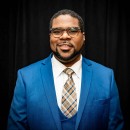 Charles Williams Reflects on Juwan Howard in Diverse: Issues In Higher Education
Charles Williams Reflects on Juwan Howard in Diverse: Issues In Higher EducationCharles Williams' editorial, “The Real Lesson That We Learned from the Juwan Howard Incident: A Black Man Still Has No Rights That Require Respect” is included in the latest issue of Diverse: Issues In Higher Education. “Watching Coach Howard try to negotiate anger the best way he could when walking down the handshake line, makes me flashback to every single moment in my life when I got to my car, or made it to my office or left the conflict and literally thanked God that I got away without having an emotional to physical blackout,” wrote Williams.
- February 28, 2022
- Learn more »
- Kathryn Elizabeth (Beth) Angell Appointed Dean of the School of Social Work
On February 17, 2022, the U-M Regents appointed Kathryn Elizabeth (Beth) Angell as the School of Social Work's next dean. She will begin her appointment on July 1.
Angell is an experienced administrator and is currently the dean of the Virginia Commonwealth University (VCU) School of Social Work. She previously served in a number of leadership roles at Rutgers University. During her tenure, VCU has seen record student enrollment, launched a fully online MSW program, and navigated the many challenges in teaching and serving students during the pandemic. She has also supported numerous efforts across the school related to social and racial justice. As a researcher, she focuses on service delivery for adults with serious mental illness, and the intersection of mental illness with legal and justice system involvement.
- February 17, 2022
- Learn more »
- MSW Student Brandon Bond Named to U-M Presidential Search Committee
MSW/MPH student Brandon Bond is one of just two students named to the U-M Presidential search committee. Throughout his time at U-M, Bond has served in various leadership roles to advocate for student interests including the VP of Student Life Advisory Board, Dean of Students Advisory Board, Office of Enrollment Management Advisory Board, Advancing Public Safety at U-M Task Force, and President of the Public Health Student Assembly. He is dedicated to ensuring that the diversity of student needs is reflected in the selection of the next U-M President.
"Considering that this is such a huge undertaking, which will impact the future of the University of Michigan and our overall community, my hope is that our community will become and remain active in the search process! A few of ways our community can contribute and advocate are to 1) nominate a potential Presidential candidate through the executive search firm portal, 2) attend a virtual listening session to provide input on their expectations for the new president and perspectives about the ideal candidate profile, and 3) stay informed on the process by staying up to date via the Regents website."
Bond received his undergraduate degree from U-M with a double major in Biopsychology, Cognition, and Neuroscience (BCN) and International Studies, and a minor in CASC — the School’s Community Action and Social Change undergraduate minor. In a 2020 interview in Ongoing, Bond said
- February 15, 2022